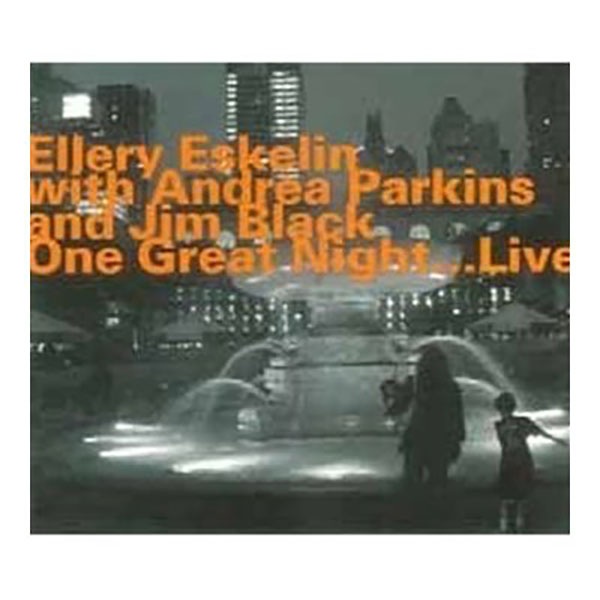
by Tim Owen
August 21, 2009
/ ALBUM
The trio oscillate between spontaneous composition and colouration, abstraction and playing deep in the groove
Ellery Eskelin - Tenor saxophone
Andrea Parkins - Accordion, electric piano, organ, laptop sampler, grand piano
Jim Black - Drums and percussion
While playing together as a working unit for the past fifteen years, a number of this trio’s ten recordings to date - all made in the studio - were recorded hard on the heels of tours. This, their first concert recording, was no exception: it was captured at a university concert hall in Eskelin’s home town of Baltimore in 2007. Six of the seven pieces have featured on recent studio recordings, although the four from Quiet Music were originally arranged for the trio plus keyboards and vocals in what were presumably quite different renditions.
The trio oscillates between spontaneous composition and coloration, abstraction and playing deep in the groove. They take what is clearly a well rehearsed group dynamic and make it sound anything but complacent. Each piece is reworked from the inside out while its internal coherence is retained; the band is astonishingly well attuned to each other’s responses, and passages displaying any hint of irresolution are few and minimal. And it would be quite wrong to imply that this music is all about abstraction. When they have a mind, as they often do, the trio can instantaneously lock onto a groove or assert a rhythm with galvanizing effect.
Eskelin’s leadership somehow never seems in doubt, although the trio is evidently very much a confederacy of equals. He supplies the compositions and his course-grained lyricism seems imprinted in their DNA, but although the parameters for improvisation are unclear the music’s moment-to-moment development sounds utterly, electrically spontaneous.
Andrea Parkins’ multi-instrumental role is constantly mutable. Listeners who are familiar with her cousin, harpist Zeena Parkins’ work will discern a similarly intuitive feeling for textural juxtaposition across multiple lines of musical development. But whereas Zeena’s playing has a glistering exactness, Andrea’s multidisciplinary approach has a peculiarly fuzzy, though no less precise logic. While Ellery Eskelin’s rough-hewn tone is sinuous throughout and Jim Black’s drumming is dependably emphatic, even when he is called upon to switch his attack on a dime, Parkins is ever the wild card, switching between instruments at inspired moments to inject a new sonority or atmospheric. She works hard to prompt new twists and trajectories through the known territory of these compositions. Witness the way, in the eighth minute of For No Good Reason she switches from a playful plinking of her grand piano’s ivories to dolorous chords, via the briefest swirl of cloud static from her laptop sampler, while Eskelin worries away at one exoskeletal motif. After this mood shift prompted by Parkins the trio lock together, Black’s astute control of timbre enabling the group to bind the piece into a halting funereal rhythm. A segue to the bluesy introduction of the following Coordinated Universal Time is just perfect; the sudden transition then to an emphatic but loosely funky swing somehow just what the doctor ordered. The whole album progresses in this way. If the mood is wrong and the listener isn’t ready to engage then the effect is mithering, at worst irritating. But play this recording when the mood is right and its entire seventy minutes go past in a snap, its many twists and turns being remarkable in themselves and each track satisfyingly whole and coherent.
blog comments powered by Disqus